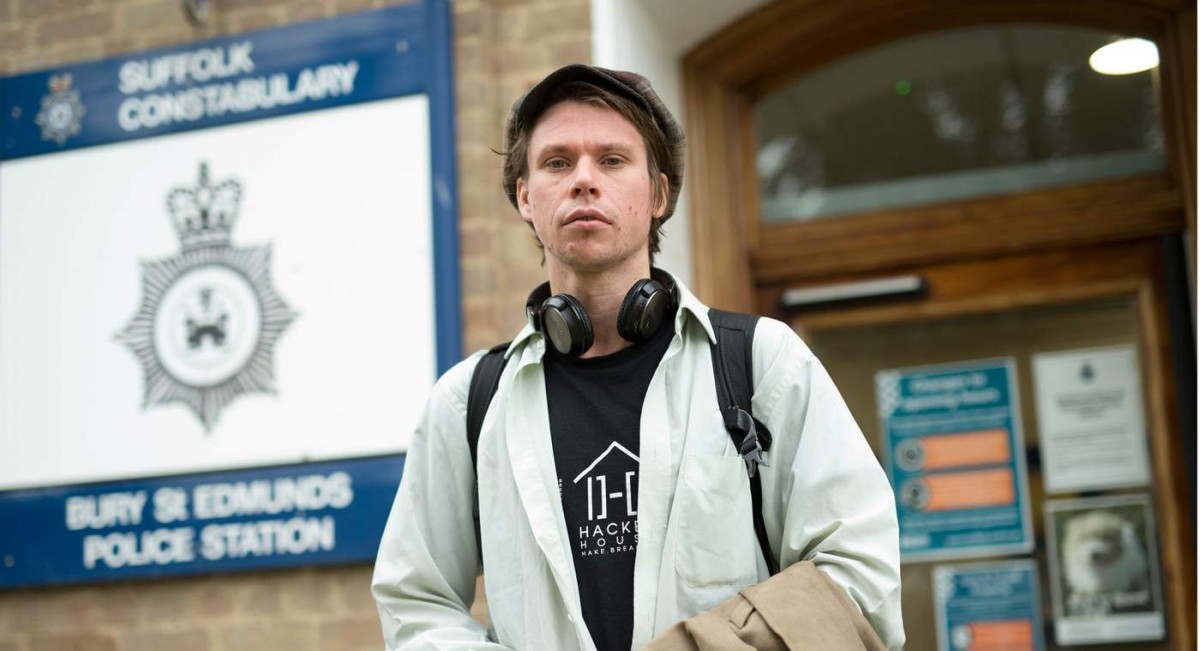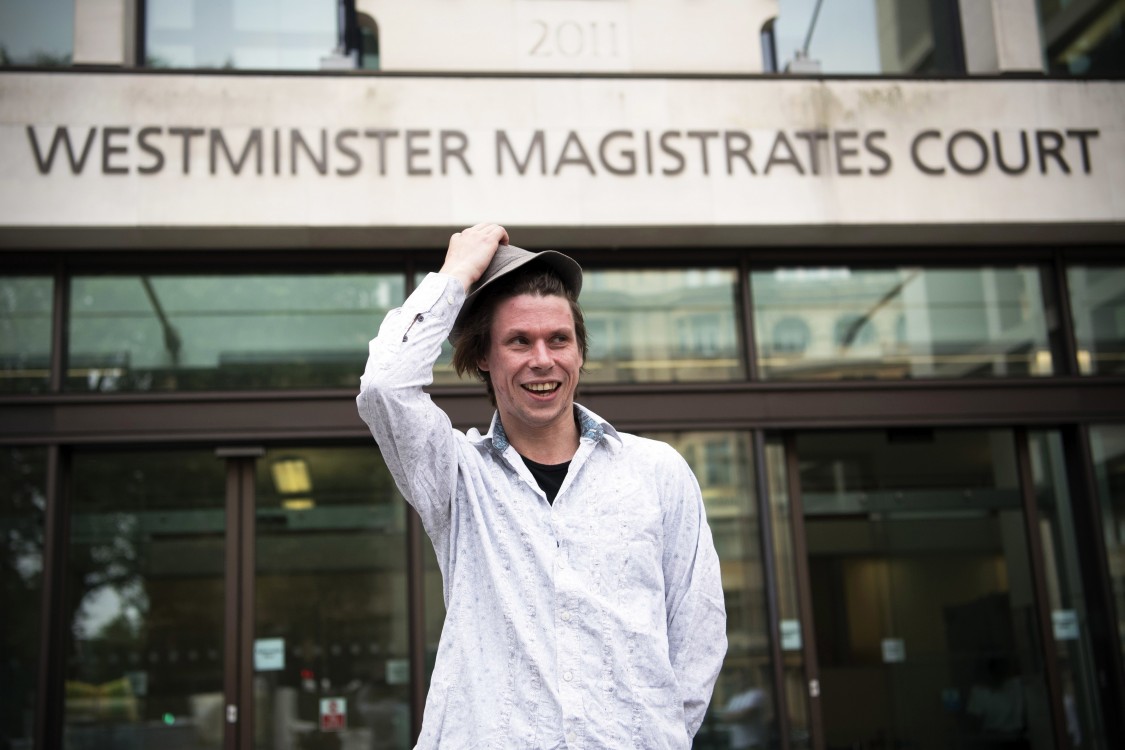
Chelsea Manning, Jeremy Hammond, Edward Snowden, Aaron Swartz. What do these people have in common?
All have played a part in the ongoing information war between the United States government and, well, everyone else. The response to such acts as leaking details about military operations in Iraq and Afghanistan, downloading academic journals with the intent of distributing them for free, revealing nefarious deeds by intelligence contractors, and letting the world know that the NSA has its eyes on you, are unnecessarily harsh. These people are young and they are brilliant. But they are also considered a threat worthy enough to throw the entire might of the U.S. legal system against them.
Even if they are someone like Lauri Love.
Love, 33, was arrested two years ago over his alleged participation in Operation Last Resort, which was carried out under the name of the hacktivist collective Anonymous. Love is currently facing extradition to the U.S. from Britain. Although the extradition request was initially granted, he is appealing.
Love has Asperger’s syndrome with severe depression and has bluntly said that he would rather commit suicide than languish in an American prison. His lawyers have argued that extraditing him would violate his human rights.
Operation Last Resort included a hack of the United States Sentencing Commission website and called for, among other things, reform of U.S. computer law. As an added Easter egg, if visitors typed in a classic video game cheat code, the website turned into a game of asteroids.
I spoke over the phone recently with Stanley Cohen, an attorney who represented the PayPal 14, a group of internet activists who targeted PayPal for refusing to process donations to WikiLeaks. Cohen called the possible extradition of Love an “exercise in sacrifice,” but said he was cautiously optimistic about Love’s chances.
“It may be wishful thinking, but I have a feeling he won’t see the United States, given all the hassles and pressures in the Department of Justice. This is an administration that is dealing with world-based problems. Lauri has done nothing [wrong] and the idea that he should be extradited from the UK is absurd.”
He went on to say that activism, internet-based or otherwise, is always changing.
“There are people in the streets that are the inheritors of Emma Goldman. Their voices are different, their tactics are different, but it’s a different time and place,” Cohen added.
The beginning of the government's current information war against the public is unclear. But the widespread protest in early 2012 against the Stop Online Piracy Act (SOPA) was a pivotal moment for internet activism. In that campaign, Google, Wikipedia, Reddit and other major sites publicly opposed a bill that lawmakers advertised as a way to combat piracy, but which the online coalition argued would cause censorship across the web. Other websites directed users to send emails to their representatives urging them to vote against the bill. After it was defeated, it had a galvanizing effect. Perhaps, as many had hoped, the internet could work as an egalitarian and decentralized force for good.
But things took a dark turn when a young internet prodigy, Aaron Swartz, was indicted for downloading academic articles from MIT’s computer database. Faced with felony charges, relentless prosecutors and years in prison, Swartz took his fate into his own hands and tragically committed suicide in on Jan. 11, 2013.
Swartz wasn’t just some random person. He was a brilliant programmer, one of the founders of Reddit who had worked on the development of RSS, a program that is now used everywhere on the web – and he did this all before he had even turned 20. If he had lived he might have gone on to do even bigger and better things. His death was a waste – and for many attempting to understand why he had passed away, the feelings turned from sadness to anger.
Anonymous is a hacking collective that fed into the concept of internet activism as a tool to change the world. It started initially as a joke on the image board 4chan but developed into a guerilla hacking network for varied causes, from protesting the Scientology movement to attacking PayPal for its refusal to process donations to Wikileaks. Various groups under the Anonymous umbrella name also exposed rapists in Steubenville, Ohio, leaked information detailing the inner workings of defense contractors like HB Gary and Stratfor, and assisted activists on the ground in Tunisia during the Arab Spring.
With the death of Swartz, whose influence among those in computer and hacking-related fields was substantial, there was an immediate sense that their community had been attacked and needed to do something about it. Operation Last Resort was the culmination of this.
There is an obvious, disproportionately harsh response to internet activists who commit what are essentially acts of online civil disobedience. These protests are generally in reaction to wrongdoings committed by powerful governments. The lesson we have learned is this: there is one law for the powerful, and another law for the rest of us. But history will look kindly on the likes of Aaron Swartz, Lauri Love and others, regardless of their alleged crimes. One thing is for certain: as technology continues to be innovated by the best and brightest among us, there will always be room for newer, more egalitarian forms of opposition to tyranny. For this, we should be grateful to the Lauri Loves of the world.
Love’s extradition case will be heard by a High Court in the UK on Nov. 22-23.
3 WAYS TO SHOW YOUR SUPPORT
- Log in to post comments

















